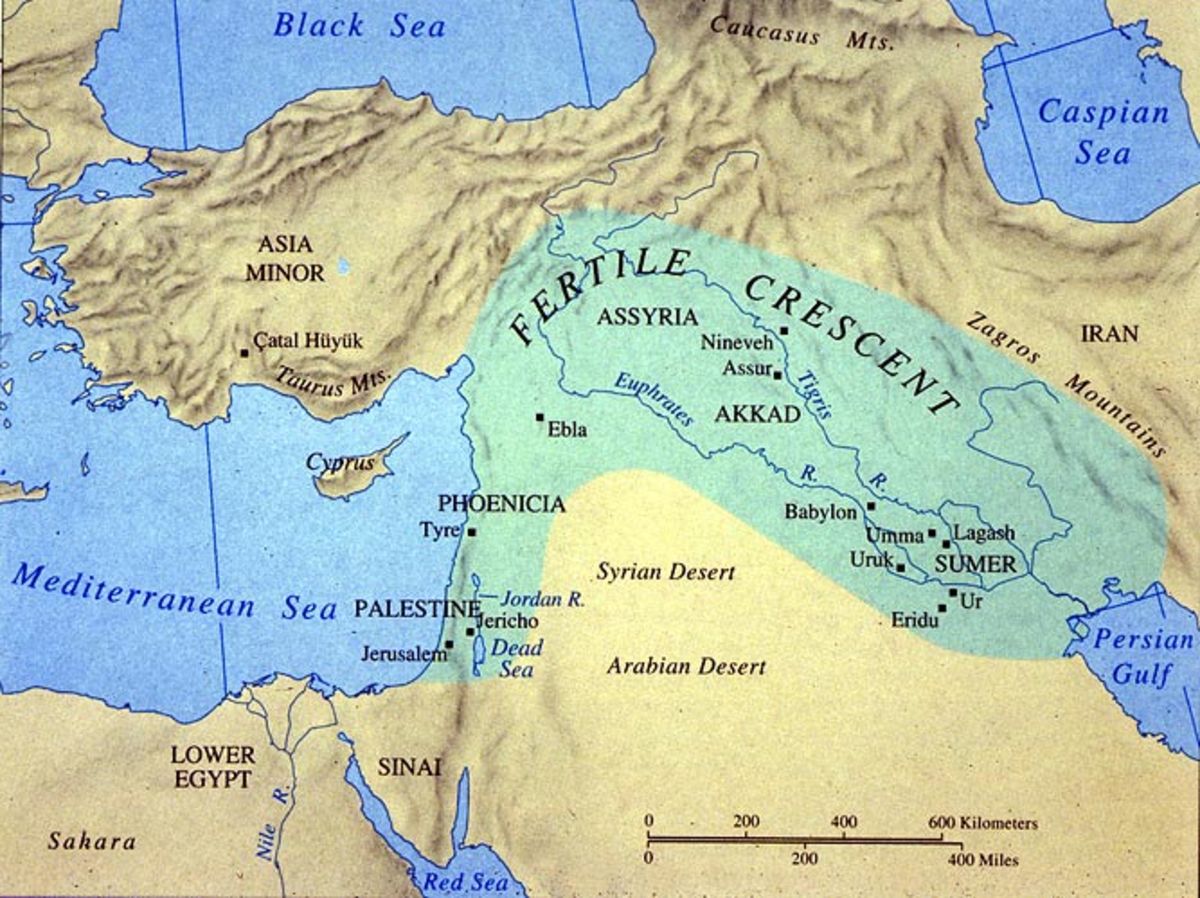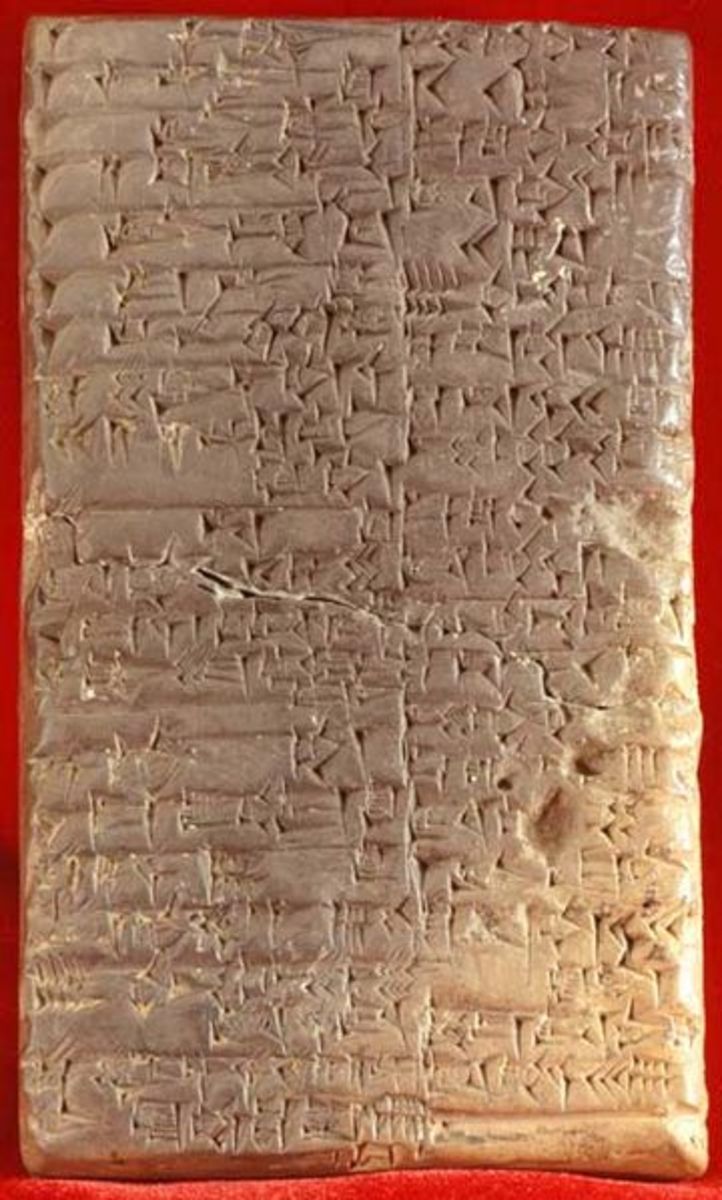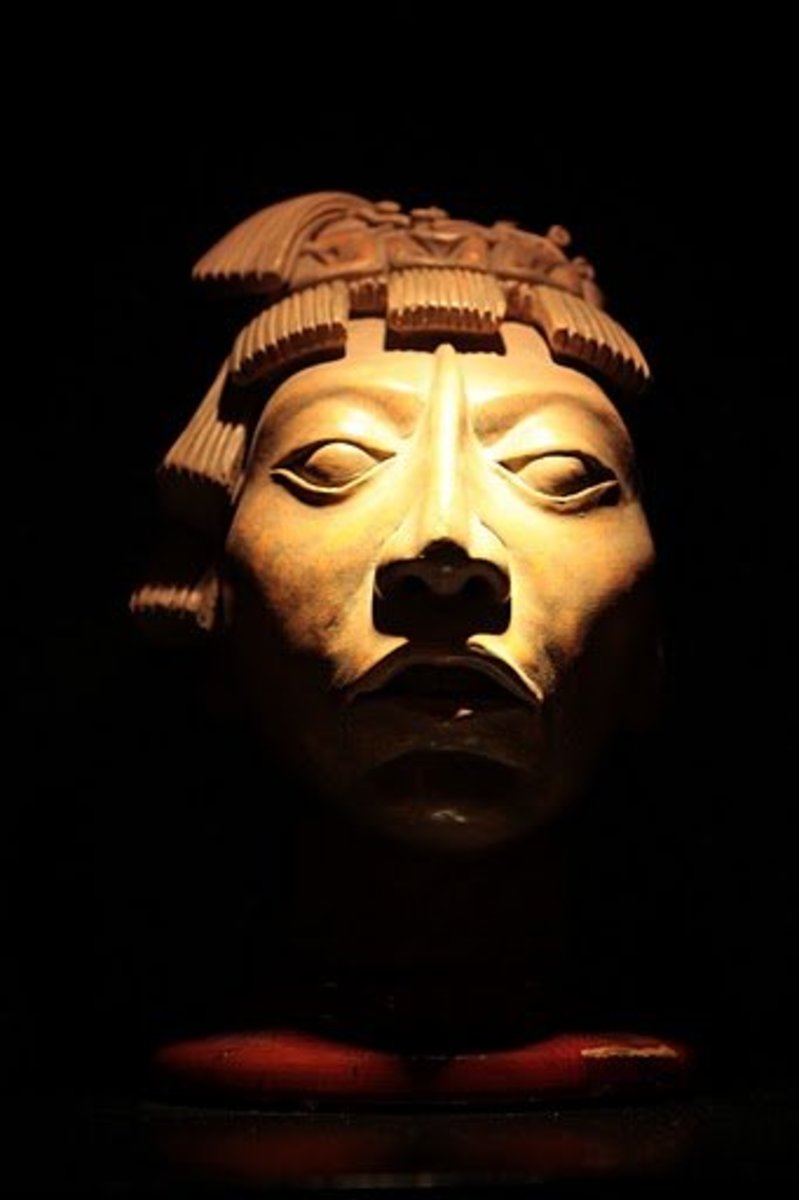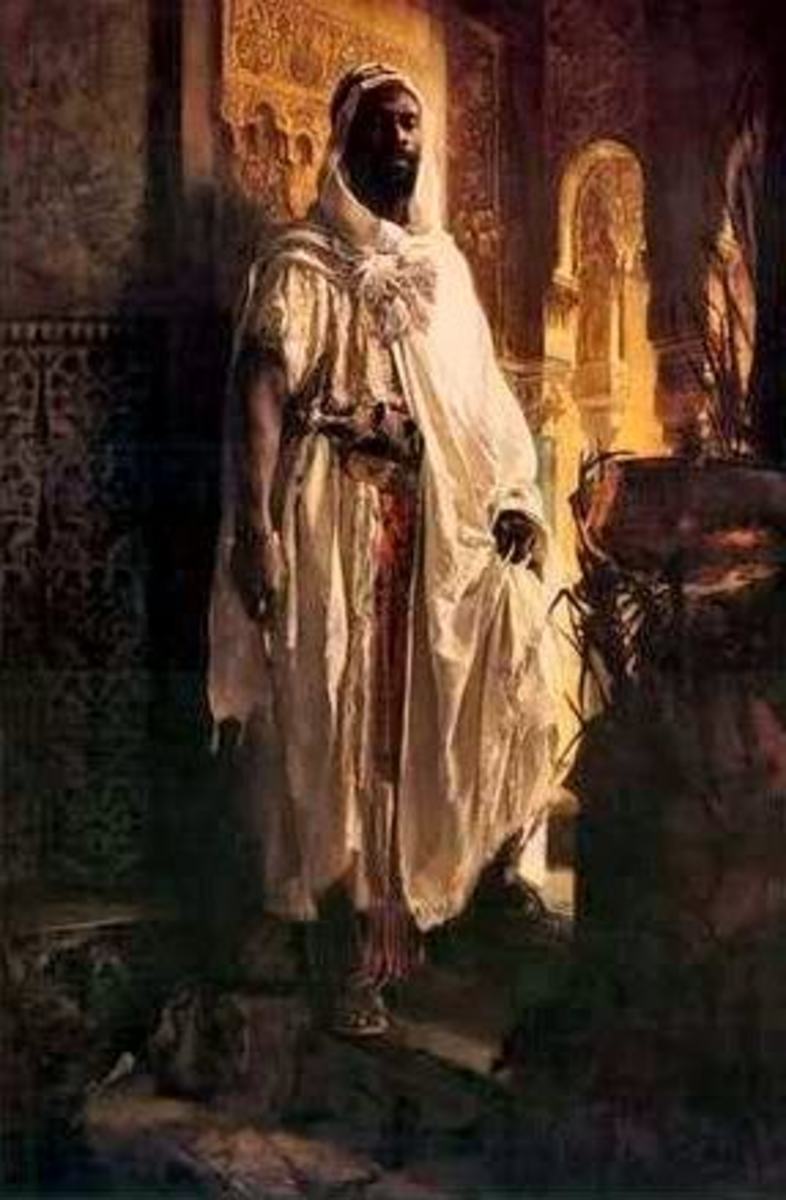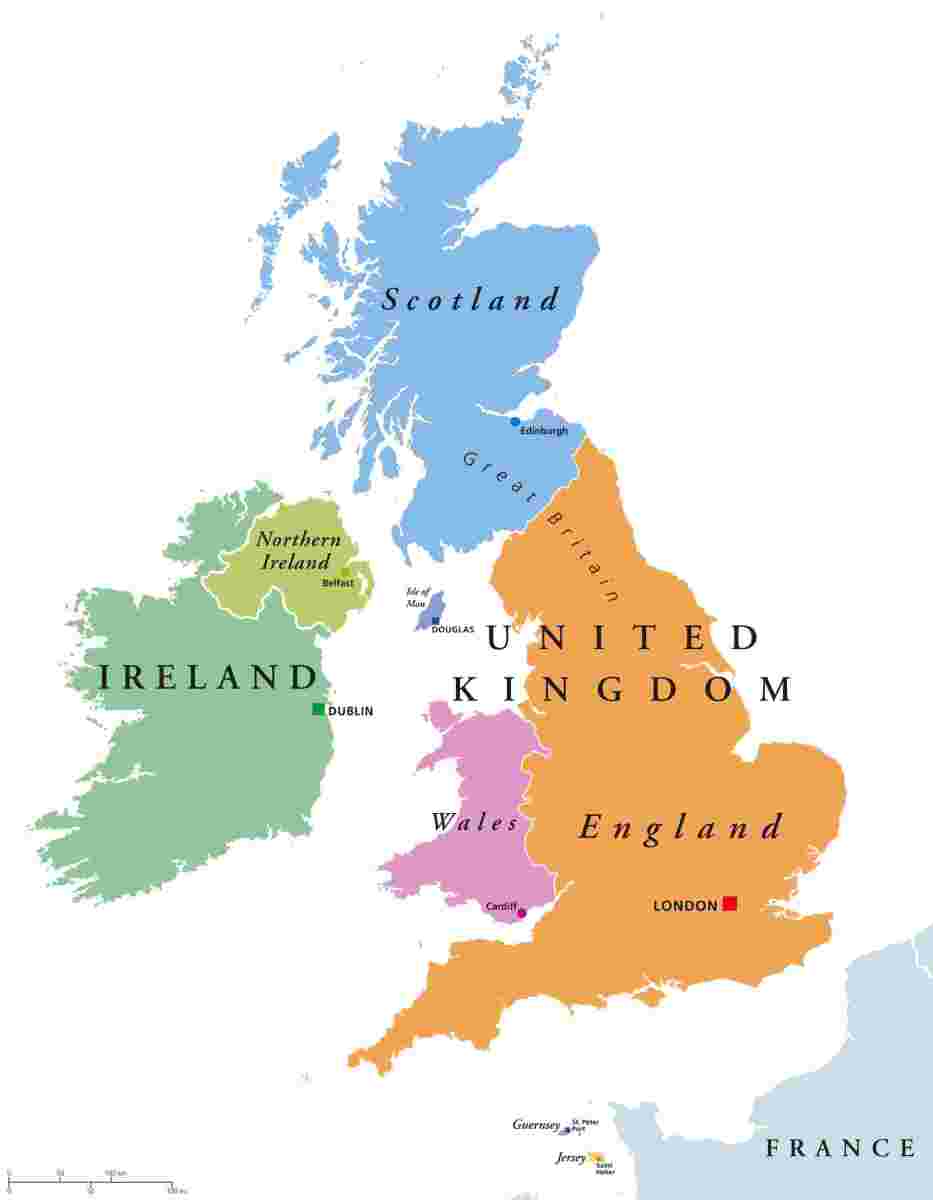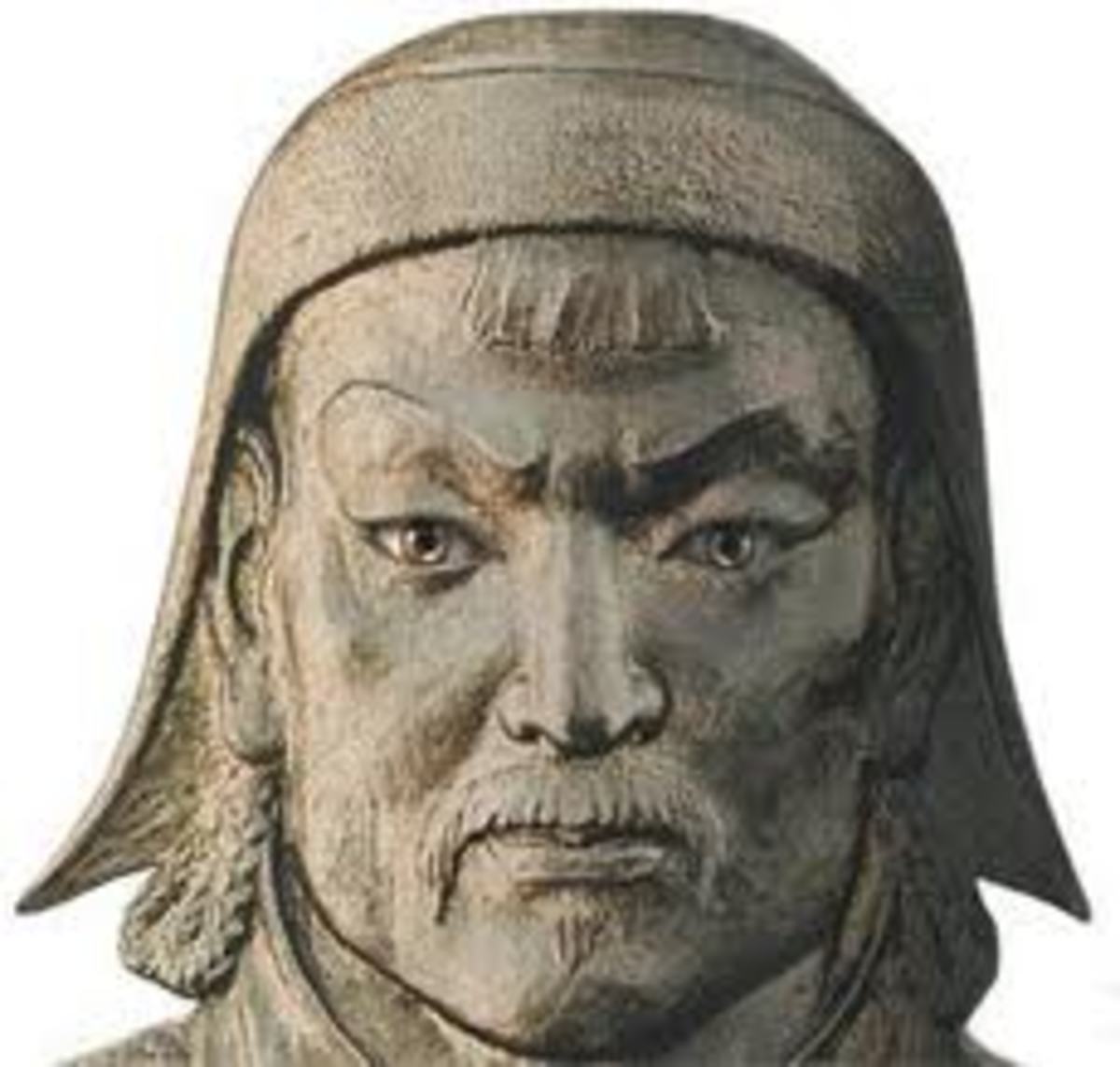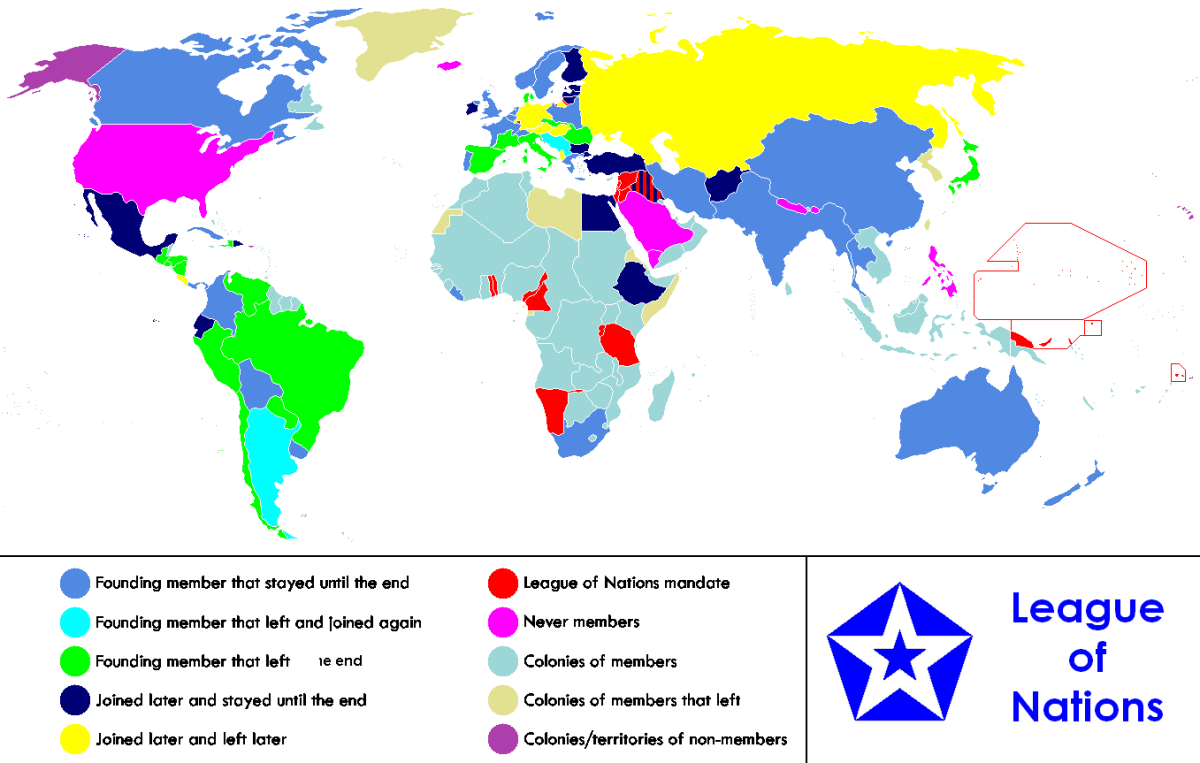Rethinking the Thundering Hordes: (A Commentary on a Scientific Article)
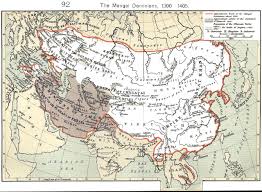
The article is "Rethinking the Thundering Hordes: How Herding Nomads Created the Network that Carried Civilization Across Central Asia More than 4,000 Years Ago" by Andrew Lawler. It was originally published in the May/June 2012 issue of Archeology magazine ("A publication of the Archeological Institute of America").
I want to start by saying: I believe the thesis, presented in this article, could and should have enormous implications. To put it very simply, it has the potential to fundamentally change how we understand history. Not only that, but the implications could potentially alter how we understand human evolutionary origins, but that is a point I will return to at a much later point in this essay.
Before going any further, I'd like to make four basic propositions.
1. A crucial part of global human history is the refinement of long distance travel. Whenever some unknown frontier was contemplated, the first people sent to explore it would have been both the mentally toughest and physically hardiest of the community's people. It would have had to have been this way because of the extreme arduousness of the journey (weather, terrain, distance, etc.). Over time, through the collaborative efforts of these explorers, improvements in navigation and transportation technologies, and other things, such a trip was made progressively easier, until just about anybody could make the excursion, and, for all and intents and purposes, special physical and mental qualifications were no longer called for.
2. The second proposition springs directly from the first. I don't know if this is a formally proven rule in social theory, by my readings have suggested a rule. The rule is this: Upon the creation of any entity, any institution, the forces that went into creating it, are not the same forces that are called upon to preserve and sustain it. In fact, the former---the original creative forces that went into creating the entity---now come to be seen as destabilizing and a threat to the very institution they helped to create, as counterintuitive as this sounds. Why? The easiest way to see this is the old American saying: "Don't reinvent the wheel." Forces go into making that wheel. Once the wheel comes into being, it would like those original creative forces to go away. If those original creative forces do not go away, the wheel comes to see them as an existential threat; because the continued existence of these original creative forces appear, to the wheel, to augur at least an attempt to "reinvent," that is to say, destroy it. So the wheel seeks to act preemptively to try to destroy, or at least, suppress the original forces. This thesis can be used to explain various things like: the Salem Witchcraft Trials and the historical hostility of theocratic states to the mystic tradition in general; anti-Semitism; the contradictions of capitalism and communism (socialism), especially exemplified by the United States and the former Soviet Union during the Cold War; the path of Israeli farm collectives in the early twentieth century; the historical and universal old money/new money social friction; the reason that, historically, the merchant class has been resoundingly hated by everybody, all over the world, up until a very short span of time of three or four centuries ago; and so on (1).
3. We should get used to the idea that the "herding nomads" of history were, perhaps, not who we have always thought they were. I'm talking about 'Mongols,' 'Vikings,' 'Hyksos,' and folks like that. Whatever image you have in mind from the way we have all been taught history---nomads as unthinking, berserkers full of incomprehensible savagery---will have to undergo serious revision. Rather than "the invincible opponents of civilization," it seems that the exact opposite is the truth; groups like these contributed so much to the emergence of urban society itself.
4. If the third proposition is true, if they actually helped to create urban civilization itself---as the ample available proof says it is---then why did the 'Mongols' and others live the way they did, wandering around the Earth on their Yaks and such? What I suggest is that, in the case of several of these groups, that nomadic lifestyle was merely transitional, in the service of the objective I outlined in the first proposition. Consider astronauts and cosmonauts. Obviously, under normal circumstances not related to their work, they do not live in metal tubes suspended millions of miles away from the planet, floating around in zero gravity. Perhaps we should think of at least some of the "herding nomads" we come across in our historical reading as the "astronauts" and "cosmonauts" of their time.
I want you to think about this: Imagine all the folks floating around in outer space, in their metal tubes and on the space station. What if, for some extraordinary reason, we did not welcome them back on Earth when they tried to return? How do you think they would react? How do you think they would react after the fact of their sacrifice and all that their efforts did to actually enhance life for us, here on Earth? How do you think they would feel? What kinds of things do you think they might do, if it were within their power to do so? You rather have something similar to a Wrath of Khan situation, do you not?
What if the Mongols, then, were like the "astronauts" of their time? What if their long-term travels and explorations and the immense sacrifice this entailed contributed mightily to the ethereal incandescence of China, in accordance with my first proposition? And yet, what if, in accordance with my second proposition, China did not welcome their 'Mongols' back into the fold to, justifiably, enjoy some of the fruits of their labor and sacrifice---because China (or elements of Chinese society) have come to see their 'Mongols' as anachronism, dangerously destabilizing, potentially wheel-reinventing viruses that must not be allowed to infect the perfect Confucian body?
Let's look at the article a bit.
First of all, the area under consideration in this article, is present-day Turkmenistan, Uzbekistan, and Kazakhstan.
Andrew Lawler, the article's author, wrote: "Wandering bands and tribes roamed this immense area for 5,000 years, herding goat, sheep, cattle, and horses across immense steppes, through narrow valleys, and over high snowy passes. They left occasional tombs that survived the ages, and on rare occasions settled down and built towns or even cities. But for the most part, these people left behind few physical traces of their origins, beliefs, or ways of life"(2).
Note: How many "physical traces of their origins, beliefs, or ways of life" would astronauts and cosmonauts leave on space stations?
Let's keep moving.
As early as the fifth century B.C., Lawler wrote, we read the Greek historian Herodotus, who warned of barbaric and warlike pastoralists called the Scythians, who lived north of the Caucuses and drank blood from human skulls. Later there were the Xiongnu from the Siberian steppe, who "raided" Chinese towns in the second century B.C., prompting the construction of the so-called Great Wall of China (3).
Note: The reason I took it upon myself to put the word raided in quotes is because this kind of thing goes to the kinds of assumptions we have always taken onboard about various nomadic peoples in history, as unthinking forces of nature like hurricanes or earthquakes, or something like that. And, again, my proposal is that, in many cases, this wandering lifestyle was, perhaps, transitional in the same way that the mode of existence of the working astronaut is transitional and mission-related.
Indeed, in 1907, the sociologist Jerome Dowd wrote: 'Nomadic people are generally the invincible opponents of civilization' (4).
What I suggest, in accordance with my first two propositions, is that we may often be looking at situations in which the mobile peoples attack settled communities out of revenge---in further accordance to the "Wrath of Khan" allusion I brought up---because the latter tried to shut them out of the very urban civilizations which they, the situational-tribesmen, helped to create.
If you will not share, we will take it all!
Michael Frachetti, an archeologist at Washington University in St. Louis, took a very different view. he believes that the Central Asians were the "early midwives" of the "birth of civilization" (5).
Lawler wrote: "Frachetti argues that ancient pastoralists living in the third millennium B.C., at the time of the first great cities of Mesopotamia, Egypt, and the Indus, created a network stretching across thousands of miles that passed along goods, technologies, and ideas central to urban life. He believes they helped create civilization rather than hindering it" (6).
Note: When I read that part about the "network stretching across thousands of miles that passed along goods, technologies, and ideas central to urban life," I thought to myself: Cool, ancient Internet!
Obviously I don't intend to reproduce the entire article here. I hope I have perked your interest enough for you to pursue further reading on your own. However, let me give you one more juicy tidbit from it.
Lawler wrote: "The combined finds in Uzbekistan and at Begash suggest to Frachetti that the people living in Central Asia around 2000 B.C. were part of the rapidly urbanizing world, where the great cities of Egypt, Mesopotamia, and the Indus were at their peak, and just as Chinese urbanization was beginning. Though these pastoralists may never have traveled more than a few dozen miles from plain to valley to alpine meadow, Frachetti maintains they had access to the wider world" (7).
Also: "And, by passing along important innovations such as grains and other goods, they had a hand in connecting far-flung civilizations" (8).
"These are the voyages of the starship Enterprise... its five year mission to explore strange new worlds, to seek out new life and new civilizations, to boldly go where no man has gone before."
Obviously I'm having a little fun with you with that bit from Star Trek. But nevertheless, I insist this is precisely what I think was happening in many cases; that is the situation that I believe Andrew Lawler's article is talking about, even if neither he, his magazine, or any of the researchers his piece mentions, quite conceives of the data their discovering, in quite that way.
And furthermore...
The idea that the "herding nomads" of history deserve a prominent place of consideration in the history of the development of urban civilization, has support.
The historian Chris Harman cited a researcher called Gordon Childe.
According to Childe: 'The two millennia immediately preceding 3000 BC had witnessed discoveries in applied science that directly or indirectly affected the prosperity of millions and demonstrably furthered the biological welfare of our species... artificial irrigation using canals and ditches; the plough; the harnessing of animal motive power; the sailing boat; wheeled vehicles; orchard-husbandry; fermentation; the production and use of copper; bricks; the arch; glazing; the seal; and---in the early stage of the revolution---a solar calendar, writing, numerical notation, and bronze... The 2,000 years after the revolution produced few contributions of anything like comparable importance to human progress. The advances which did occur ('iron, water wheels, alphabetic writing, pure mathematics') were not made inside the 'great civilizations,' but among "barbarian peoples" on their periphery' (9).
Back to Chris Harman: "That section of society which had been freed from daily toil in the fields no longer had any interest in furthering humanity's control over nature." The idea, Harman says, is simply that because these new rulers no longer had to do the drudgery themselves, the matter of how the work was done became a matter of not the slightest concern. They saw no need, therefore, to bother about labor-saving devices like animal motive power, metal tools, and so forth (10).
The Neanderthal-Cro-Magnon Question
I told you that I would return to the matter of how the thesis I have presented here, might relate to human evolutionary origins. The matter revolves around the so-called Neanderthal question. The debate is about the so-called 'Neanderthal's' place in human evolutionary history.
The generally accepted consensus seems to be that the so-called 'Neanderthal' represents an evolutionary trajectory of humanity that ultimately "failed." The so-called 'Cro-Magnon' line is the line that proved worthy and gave rise to us, me and you, me writing this and you reading this.
Spoiler Alert: In accordance with the thesis I have presented in this essay, I reject the very idea that any such 'Neanderthal'/'Cro-Magnon' differentiation is justified.
Evolutionary biologist Mark Pagel published a book in 2012 called Wired For Culture: Origins Of The Human Social Mind. In that book we read:
"Twenty-eight thousand years ago, in a large cave at the southern end of Gibraltar, what might have been the last of the Neanderthals died. They hadn't been pushed there by the encroaching Ice Age that would reach its peak in Europe about 8,000-10,000 years later. Instead this was their last redoubt, having been displaced, outcompeted, or simply killed by modern humans who had relentlessly marched all over Europe following their arrival some 12,000-15,000 years earlier. It must have been a time of terror, confusion, and despair for the Neanderthals, whom we now know were over 99.5 percent identical in the sequencing of their DNA to us, and who had been living in Europe for perhaps 30,000 years. The new modern people would have been would have been cleverer and more inventive, more adaptable, more mobile, and certainly more successful. They would have carried a baffling and frightening array of technologies, and they would have been good at using them. Their standard of living would have fallen short of ours, but to the Neanderthals, life in human society must have seemed luxurious and privileged. And to make matters worse, these modern humans might even have shown up singing and playing instruments, dancing, wearing sewn clothes, producing art and making carved figures. It would have been like a scene from a science fiction story of a people confronted by a superior alien race, except it was really happening" (11).
1. I propose that the scenario we just looked at, quoted from evolutionary biologist Mark Pagel's book, could just as easily fit the thesis I have presented in this essay.
2. I propose that, in accordance with my first proposition, that it may be the case that the history of the refinement of long distance travel goes back much further in time than we imagine.
3. I propose that the so-called 'Neanderthals' were, in fact, the world's first "astronauts" or "cosmonauts," the mentally toughest and physically strongest of their communities, who had been sent out to explore the unmapped, unknown.
4. I propose that it was the case that, in accordance with my first proposition, that the way was arduous at first, and this is why very sturdiest members of society were sent first, the so-called 'Neanderthals.'
5. In accordance with my first proposition, I propose that it was the case that, over time, through cooperative efforts of the first explorers and, perhaps "home base," to the extent that such a thing was possible, ways were found to make the journey easier so that---again, in accordance with my first proposition---special characteristics came to be called for less and less to make the trek.
6. I propose that it was the case that, subsequently, members from home or "home base" joined the first explorers.
7. I propose that it was the obvious case that "home" or "home base" had changed, developed new things over the course of the amount of time that would have elapsed between the time the first explorers were sent out and when elements from "home" reunited with them.
Notes and References
1. Let me give you just one small example of what I'm talking about. We are discussing the point I made in my second proposition; let's call that the "Wheel Hypothesis."
Anti-Semitism
First of all, we can see how anti-Semitism conforms to my "Wheel Hypothesis," as I described it in my second proposition, precisely in the way that Christian Zionism acts as the "Good Cop," to the "Bad Cop" of directly straightforward anti-Jewish racism.
The Forces that Create
Anti-Semitism springs out of Christian-based society. Christian-based societies know that Christianity comes out of the Jewish faith. They understand that Judaism is source of their religion. They understand that it was the death of "Jesus Christ," the "Savior" that brought about Christianity. One might expect gratitude on the part of the Christians, but, of course, that is not the way it works for anti-Semites.
The Forces that Preserve and Sustain
As I said, we can see the way that Christianity views the continued existence of Judaism as a threat, in the way that Christian Zionism plays the "Good Cop" role. What is Christian Zionism? The ideology is both pro-Israel and profoundly anti-Semitic at the same time. Christian Zionism says that it is crucial that Israel be in control of the Jews so that Jesus can return to the Earth to commence the rapture. However, those Jews who fail to convert to the true religion of Christianity, after all, will be destroyed.
One more... How about the Salem Witchcraft Trials?
What was the deal with trying to route out "witchcraft," which was a thing in both colonial America and Europe?
The Forces that Create
How did religions get started, as far as we know?
Well, there were always some people---call them 'mystics,' or 'shamans,' if you like---who put themselves through physical exercises, breathing drills, and the like, whereby they were able to experience dramatically altered states of consciousness, which, from their perspective, put them in touch with deeper, more sublime realities, the spiritual world underpinning the one we experience everyday with our five senses. They often believed they heard the voice of God.
Now then, in accordance with my second proposition, try replacing the word 'witchcraft' with 'shamanism'---The Salem Shamanism Trials.
The Forces that Preserve and Sustain
Now then, as the 'mystics' or 'shamans'---whatever you want to call them---were having their transcendental experiences, their visions, hearing the voice of God, they were probably always attended by people who wrote down what these God-drunk people were saying, because when God speaks it is good to have some taking dictation.
Over time quite a body of literature was built up. And let's be honest, the attending scribes probably found it necessary to do quite a bit of "editing," to make sense of contradictions, and so forth, make things flow logically, and all that good stuff.
So, the literature and its interpretation became the thing. Indeed, there is even a tradition in Jewish religion that explicitly says that once something has been passed down from Heaven, it becomes the property of humankind. Notice that there is a built-in bias, here, against mysticism with its independent tendencies.
From the perspective of any theocracy, then, the continued existence of 'witchcraft,' or 'shamanism,' or 'mysticism,' or 'Sufism,' or whatever, kind of signals to the theocracy, based as it was on a religion that was originally "revealed" to somebody mystically, that said 'mystic,' 'witch,' 'shaman,' 'Sufi,' intends to supplant the status quo---which is untrue usually, but the fear that this might be the case is overwhelming for the ruling interests of the theocracy.
2. Lawler, Andrew. (2012, May/June). Rethinking the Thundering Hordes: How Herding Nomads Created the Network that Carried Civilization Across Central Asia. Archeology: A publication of the Archeological Institute of America, 42-47. 42
3. ibid
4. ibid, 43
5. ibid
6. ibid
7. ibid, 46
8.ibid, 46-47
9. Harman, Chris. A People's History of the World: From the Stone Age to the New Millennium. Verso, 2008. 34
10. ibid
11. Pagel, Mark. Wired For Culture: Origins Of The Human Social Mind. W.W. Norton & Company, 2012. 29-30

